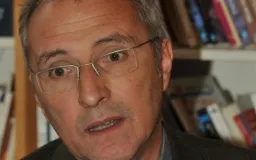
We maintain that any goal to eradicate poverty must first and foremost be based on a radical change of approach and be inspired by the intelligence and resistance of people who have been excluded.
On 17 October, the 30th World Day for Overcoming Extreme Poverty will be celebrated. Without a genuine effort at every level in government and civil society, these commemorations will be necessary for decades to come. Seventeen years ago all the member states of the United Nations signed a declaration committing to the Millennium Development Goals, which called for an end to poverty. What has happened since then that prompted the international community to establish another set of objectives, the Sustainable Development Goals (SDGs) with a deadline of 2030?
In 2000, the targets applied only to developing countries, as if poverty had simply disappeared elsewhere. Above all, the goal was to "get half the poor out of poverty", which institutionalized the ongoing violence of discrimination and social triage. Thanks to lobbying efforts of private organizations, the principle underlying the SGDs is to "leave no one behind". The goals include developing and rich countries, and aim to protect both people and the planet. This time, the goals can mobilize disadvantaged people, and we are actually capable of reaching them. But success depends on everyone.
We maintain that any goal to eradicate poverty must first and foremost be based on a radical change of approach and be inspired by the intelligence and resistance of people who have been excluded. This is urgent. We see that throughout the world, in Europe and France in particular, people who live in difficult conditions are not only blamed for their situation but are also seen as contributing to public deficits and being a burden on taxpayers.
People living in poverty now dare to come together, break their silence, and call for action against exclusion, in associations like ATD Fourth World, Emmaus, and many others. New practices and new spaces that encourage people to discuss and think together are showing the way, leading to new concepts such as social exclusion, rights such as the CMU [guaranteed health insurance], and the "Territoire Zero Chomeurs" [Districts with no long-term unemployment] initiative. Excluded people are able to organize themselves to ensure their right to health in self-managed community collectives, particularly in Africa and Asia.
Marie Jahrling is among the first people to have emerged from silence. She says: "We were despised — we are still despised — but we have kept our humanity. We understood that we were not guilty, but rather victims of the violence of contempt and injustice. Then we realized that we were not only victims but people who resist. We are for humanity." This new political force calls for an end to exclusion and poverty. But it calls us above all to reverse the choices that are leading our humanity and our planet into a dead end, and to rediscover the path of human values.



Add new comment